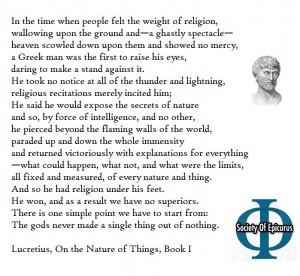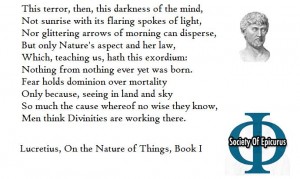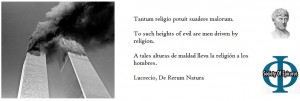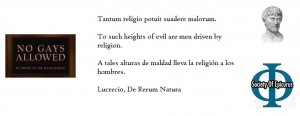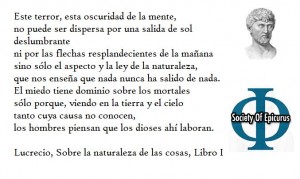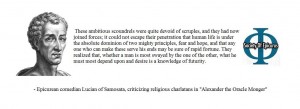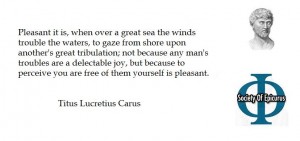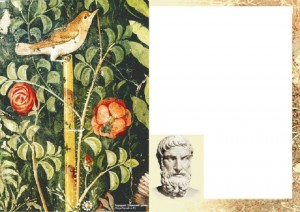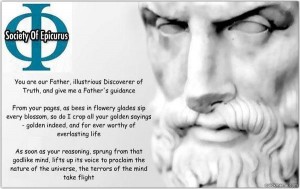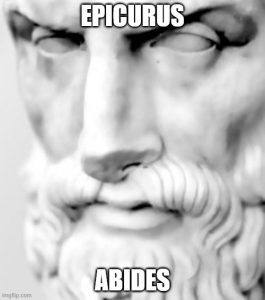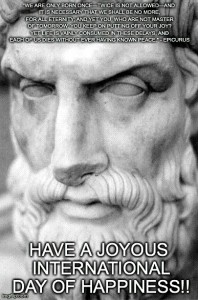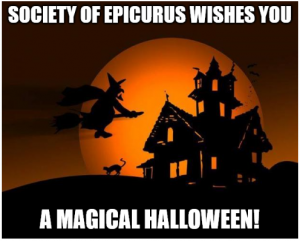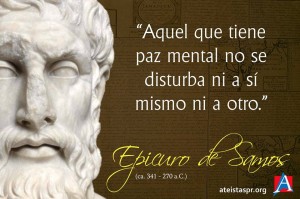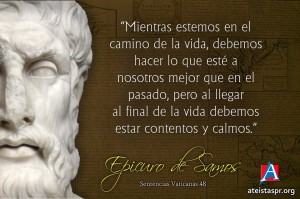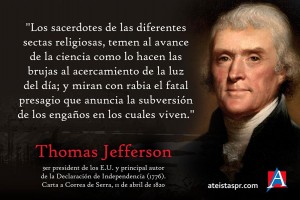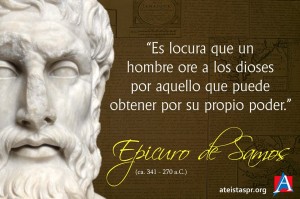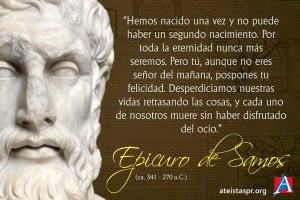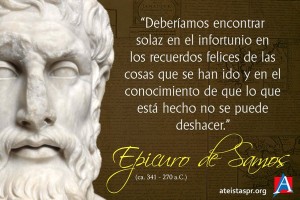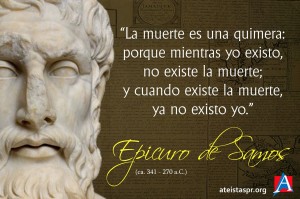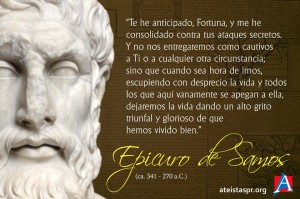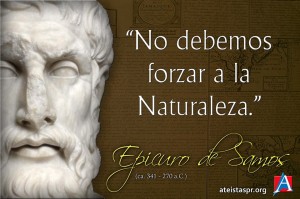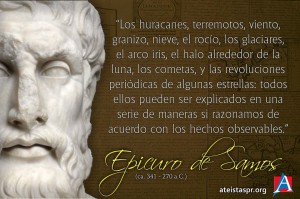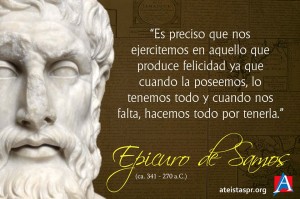
Note: The Analects seem to be, like the Qur’an, disorganized: a mishmash of a scripture that must be studied in an order other than how it’s organized. Therefore, throughout these reasonings I’ve mostly utilized the text from The Original Analects by E. Bruce Brooks and A. Taeko Brooks, which are organized by subject with commentary. The only occasion during which I replaced their choice of translation, was when their word “gentleman” became my “higher man”, as this translation of junzi is highly controversial.
by E. Bruce Brooks and A. Taeko Brooks, which are organized by subject with commentary. The only occasion during which I replaced their choice of translation, was when their word “gentleman” became my “higher man”, as this translation of junzi is highly controversial.
Confucianism, known in Chinese as the Tradition of the Scholars, is the eastern tradition of secular humanism. It is based on the teachings of Master Kong, whose name is known to the West as Confucius as a result of the first major reports on Chinese culture having been brought back by Marco Polo. His teachings (or the teachings attributed to him by his later disciples) were collected in a series of classics. These include The Analects, which are among the most revered and best preserved writings in world secular philosophy.
Unlike in the West, where so many of the founding writings of our humanism were destroyed by Christians, by time, and by feuding philosophical traditions, the teachings of Confucius were preserved with reverence by followers who had great respect for their sages, and are now considered to serve as the foundation for an entire civilization, conferring upon it stability, pride, and a deep sense of its own tradition and cultural wealth.
A general overview of the Confucian system will reveal a deep concern with stability, harmony and order, with emphasis placed on respect for elders and on the use of ceremony to secure stability. In this essay, as is now customary, I will present an Epicurean interpretation and commentary on the system. I will also argue that there are therapeutic components to Li, the ritual teachings, and point out some of the parallels between the two philosophies.
On the Rectification of Names
Epicurean masters have always been adamant that words without clear definitions, or that bear no relation to things in nature, must be avoided. Please refer to the Reasonings About Philodemus’ Rhetorica, the portion “Against Obscurity”. This was a major concern in Philodemus, and ergo we must imagine it was for the founders of Epicureanism. This notion is used (and, I believe, misused at times) in Confucius’ doctrine of the rectification of names. On the doctrine, Wikipedia says:
Confucius believed that social disorder often stemmed from failure to perceive, understand, and deal with reality. Fundamentally, then, social disorder can stem from the failure to call things by their proper names, and his solution to this was zhèngmíng (Chinese: [正名]; pinyin: zhèngmíng; literally: “rectification of terms”).
We begin to see, immediately, that in Master Kong’s tradition there is an association between nature (reality) and societal order. This is seen in societies with rigid class divisions and authoritarian governments, but also in societies where the philosophers of the ruling class are the proponents of narrative. Confucius certainly was one such philosopher of the polis/state. To shed some light on how this Heaven-focused naturalism affects our worldview, I should cite a passage from On Why Materialism Matters, where I argue that the study of nature presents us with a universe that emerges from the bottom-up instead of being “governed” from the top-down, and then explain:
The idea that the universe is “run” from the top down reflects a worldview that has obviously been favored by the ruling classes from the early times of the divine Pharaohs and god-kings. It’s old trickery, the vestige of a very old ideology, one that has absolutely no foundation in the study of nature. When we study nature, we see that there is absolutely no reason to suppose that things evolved backwards: they have always emerged and are always emerging.
It is true that much of what is enshrined in the Confucian traditions of Li, or ritual etiquette, constitutes what most Americans would identify as, well, ass-kissing. To be fair, we should let Master Kong speak for himself in Analects 13:3, and view him on his own terms. Notice the Yoda-like chain-of-causation reply by the Master:
Dz-lu said, “If the ruler of Wei were waiting for the Master to run his government, what would the Master do first?”
The Master replied, “It would certainly be to rectify names, would it not?”
Dz-lu said, “Is there such a thing? The Master is off the track. What is this about rectifying?”
The Master said, “How uncultivated you are, Yu! The superior man, with respect to what he does not understand, should maintain an abashed silence.
If names are not rectified, language is not in accordance with the nature of things. If language is not in accordance with the nature of things, affairs cannot be carried on to success. If affairs cannot be carried on to success, proprieties and music do not flourish. When proprieties and music do not flourish, punishments will not be just. When punishments are not just, the people do not know how to move hand or foot.
Therefore a superior man considers it necessary that the names he uses may be spoken appropriately, and also that what he speaks may be carried out appropriately. The superior man’s relation to words is to leave nothing whatever to chance.”
We will consider how rituals and propriety affect punishments and legal protocol in the later portion on Li. We are here concerned with how a philosopher “leaves nothing whatever to chance” when expressing himself. We begin to see the transparency exhibited by the Epicurean masters, who frequently criticized the rhetors and those who obscured speech, or used flowery words, to say nothing or, worse, to adorn lies. The decency of plain speech is hailed as a virtue in both traditions.
The Master said: “Someone who is a clever speaker and maintains a contrived smile is seldom considered to be a really good person. – Analects 1:3
Clever words confuse virtue. – Analects 15:27
Words must reach their goal. – Analects 15:41
Master Kong was not what we would today call politically correct, and he served the interests of the state and of the ruling classes. It is here that the rectification of names became an excuse to justify relations that are based on domination which do not necessarily find themselves justified in the study of nature: women must serve their husbands, and indeed Master Kong does express strong opinions against women. He also argued that if a superior loves his inferiors, he will make them work. Rectification of names implied that not only must a parent act like a parent and a son or daughter like such, but also that a ruler must act like a ruler, and a servant must act like a servant.
The rectification of names is tied to the idea that virtues vary according to the role, for purposes of efficiency. Etiquette and rules of propriety or yi (which translates as “rightness, morality, appropriateness”) are then tied to each societal role. Proper adherence to the virtues tied to one’s role produces the most efficient and harmonious society.
Duke Ding asked how a ruler should employ his ministers and how a minister should serve his ruler. Confucius replied, saying: “The prince employs his ministers with propriety; the ministers serve their prince with good faith.” – Analects 3:19
This may be quite appropriate, particularly in the case of parental roles to discipline, educate and guide children. If these roles are inverted or not fulfilled, there is disharmony. But there is a point where, by making itself useful to the rulers, the philosophy becomes a tool to advance what we Epicureans call cultural corruption. At least one Analect proposes an unnatural deontology (a duty-based morality) where a righteous man is expected to blindly follow orders even if this is a danger to him.
To see profit but think of right; to see danger but accept orders. – Analects 14:12
This, to us, constitutes a Stoic view of morality and duty which is not based on the study of nature and which celebrates resignation while letting fate decide the results of our blind obedience. This is a symptom of top-down narratives that seep into naturalism.
Moral Authority and the Importance of Role Models
To be fair, some of the narratives of common people do find their way into the Analects, which also teach that “to be poor and without resentment is difficult” (Analects 14:10). There are a couple of instances of anti-authoriarianism, or at least checks and balances, where those being ruled reserve the right to judge a superior or ruler.
But if he’s not good and everyone obeys, will this not destroy a state? – Analects 13:15
Raise up the straight and put them over the crooked, and the people will be submissive. Raise up the crooked and put them over the straight, and the people will not be submissive – Analects 2:19
If a ruler is evil, he will find it difficult to rule and will likely need to rule by force. That a master may lead by virtue has already been compared to Epicurean teachings in my Reasonings on Philodemus’ On Frank Criticism, where I said:
Confucius said that when leaders are virtuous, the people naturally feel shame when they are wrong whereas when leaders are not virtuous, they rule by fear instead and people follow the law for fear of punishment.
… We must also … distill one further insight from Confucius’ observation. Liberal societies are not a good thing in themselves: healthy association and wholesome leadership are required to make them virtuous and happy societies. In other words, it’s not enough for people to not be ruled by fear, and one of the ways in which Epicureanism is meant to work for our constant moral self-betterment, is by us avoiding the shame of disappointing the love and loyalty of our caring friends, particularly the wisest and most virtuous among them.
In other words, Master Kong theorizes that evil rulers have no choice but to be authoritarian. Virtuous rulers do not have to, because in the presence of virtuous leaders, people experience shame and fear of disapointment. With this discourse, the philosopher influenced rulers to be kinder, more virtuous, and generous.
The Master said: “If you govern the people legalistically and control them by punishment, they will avoid crime, but have no personal sense of shame. If you govern them by means of virtue and control them with propriety, they will gain their own sense of shame, and thus correct themselves.” – Analects 2:3
He developed a theory of De (moral force, or moral authority, sometimes translated as excellence), saying that it is contagious. Some Confucian traditions teach that moral authority has cultural and magical-religious power, although this is probably extra-canonical. What Analects 2:1 says is that a great man with De is like the pole star: other stars bow to it. Elsewhere in Analects 12:19, there is a famous reference to how great leaders are like the wind that makes the grass (the common people) bend.
In this sense, Master Kong’s contribution to philosophical traditions of non-violent conflict resolution is praiseworthy. For the powerless, the only non-violent resources that have worked historically to successfully create long-term societal change and end oppression have been the boycott (Martin Luther King, Jr and Ghandi) and the political act of coming out (gay, atheist, etc.) to confront people’s bigotries, but these carry potentially great risk. On the other hand, by speaking to power in these terms, Master Kong is proposing that rulers rule with propriety and fairness and arguing that, by this virtue of moral force (De), rulers can govern and bring stability without the use of force.
De is also a quality that increases with age, and serves to justify respect for elders. Like Nietzsche’s example of the honey sacrifice, Master Kong also argues that we should respecting elders because age increases ataraxia and wisdom (Analects 2:4). Just as by associating with good and happy people, we gain good and happy qualities, similarly association with people who have great moral force increases our own moral stamina. For this reason, it is almost universally preached that the practice of philosophy requires frequent wholesome association.
Honoring a sage is itself a great good to the one who honors. – Vatican Saying 32
Master Kong lived during times of great turmoil and frequently had to move from one city to the next to avoid conflict, which is why the order of priorities that Master Kong established for government was: 1. confidence of the people, 2. food, and 3. weapons. Epicurus also lived through similar times, experienced exile and used the Garden as a place to stay away from politics. We may judge Confucian emphasis on tact and protocol, as well as his advise on government and what may seem to us like an exaggerated focus on stability, as an adaptation to the difficulties of living in violent times.
Confucian Naturalism
Death is nothing to us. – Epicurus
It is clear that Master Kong’s doctrines are for the living, for this world and for human society. In this sense, Confucianism is a humanism and a naturalism (rather than a doctrine based on the supernatural). Like the Epicurean masters, Master Kong taught that reverence for the ancestral spirits and gods had a beneficial moralizing influence on the person engaged in worship and constituted a set of morale-building ritual techniques. Piety has more to do with the one doing the honoring than with the one honored. He refused to entertain ghost stories and supernatural claims.
The master never discussed strange phenomena, physical exploits, disorder or ghost stories. – Analects 7:21
Chi Lu asked about serving the spirits. Confucius said, “If you can’t yet serve men, how can you serve the spirits?” Lu said, “May I ask about death?” Confucius said, “If you don’t understand what life is, how will you understand death?” – Analects 11:12
Tian, or Heaven, is a critical component of Confucian naturalism, and one which draws some superstitious elements into the tradition. This heaven has a law, an order, ergo, its reverence is tied to ideas about Earthly government, which is then believed to be aligned with Heaven. Unfortunately, it also has a movement, ergo astrological predictions, oracles and other superstitions find justification in it.
Although immanence is stressed, there is also a numenic and transcendental component to this philosophy. Tian sounds at times like the Force from Star Wars, a mysterious, supernatural reality that is to be held in awe. However, it must be noted that Heaven bears some resemblence to Epicurean references to Nature as our Guide because it’s tied to nature and that which we can’t control (generally understood as many of the forces that shape destiny). Kurtis Hagen argues that
Misleadingly translated as “Heaven,” tian refers to the sky (Analects 19.25), and to the conditions and regularities of nature (Analects 17.19), which are held in awe (Analects 16.8). Also, tian often refers to that which is beyond human control (see Analects 9.5 and 9.6, 11.9, 12.5, 14.35). In addition, it has associations that carry over from earlier religious conceptions, which link it with ancestors and spirits.
In the Xunzi, (Heaven) as nature is stressed.
Heaven is broadly understood as reality, as the nature of things, as the laws of nature. It can also be interpreted as our own nature, insofar as it is nature that confers upon us our DNA, and ergo to a great extent, our destiny, our fate, “that which we can’t control”, which was stipulated about us before we were born. To whatever extent things are determined by nature, Master Kung attributed these things to Heaven.
There is as much of Nature beneath our feet and all around us, as there is of Nature in the skies. Why speak of Heaven, instead of Nature? Why must Nature/Reality be transcendental? I think this has to do with stressing that all the things that lie outside our control are found in Tian, and so it becomes a useful concept (particularly in therapeutic ceremony) tied to necessity and to our natural limits. There is also an aesthetic and spiritual component to Heaven.
The Master said: “The noble man stands in awe of three things: (1) He is in awe of the decree of Heaven. (2) He is in awe of great men. (3) He is in awe of the words of the sages.” – Analects 16:8
Perhaps this decree of heaven is the same as the laws of nature? In any case, Heaven literally means the Sky, but stands for cosmos, for destiny, for reality, for Nature, and is of enormous philosophical importance in Eastern naturalism.
Ceremony, the Social Contract and Stability
The first thing to understand about Li (which translates as “ritual propriety, etiquette”), which is central to Confucian tradition, is that ceremony and ritual are aligned with diplomacy. Li not only stipulates proper greetings and protocol for good working relations between the people in different societal roles (filial piety between children and parents, relations between teachers-pupils or rulers-peoples, etc.), but also is useful in law and justice, for reconciling kings/kingdoms, for reconciling enemies and sealing covenants between rulers or clans. Hence the importance of knowing and following ceremonial protocol.
Li exists in every civilized society, to some extent. There are marriage and funeral ceremonies, and usually ceremonies to welcome new children into the tribe or family (baby namings, baptismal rites). In America, we have strict rules as part of our judicial protocol, that govern behavior when we attend courts. There are societies in Oceania where elders gather in a sacred tree, the nakamal, to drink the drink of peace (kava) to settle disputes and reconcile enemies. Ritual can be cathartic and redemptive.
It is possible that Li is an inherited instinct, an archetypal element in human nature, and therefore a significant element which has not been given enough attention in Western naturalist philosophical traditions. Even chimpanzees have their own culturally-ordained greetings and grooming behavior expected between members of different ranks.
These ceremonies confer a sense of establishment. They secure stability, continuity and tradition. Epicurus recognized Li (ritual) as a preserving societal principle by instituting the eikas celebrations on the 20th of every month, and stressing their importance in his last will.
And from the revenues … make separate provision for … the meeting of all my School held every month on the twentieth day to commemorate Metrodorus and myself according to the rules now in force. – Epicurus, in his Last Will
I believe that the celebrations on the 20th of every month were part of how Epicurus applied the theory of the social contract to securing the cultural continuity of Epicureanism, and I believe that this is how Epicureanism as a school of philosophy is supposed to work. An oath was made by his pupils, which may have included the agreement to observe of “the sacred festival table“. Epicurus would not have mentioned that there were “rules now in force” if these rules had not been created through a contractarian system, which is the only means consistent with Epicurean doctrine to bring about a sense of duty. It is in this manner, and in this manner only, that Li is tied to morality: a ceremony can only be a duty if it is contract-bound.
By declaring the oath, his pupils entered into a social contract that was created with the purpose of making sure that the words and the legacy of the original founders would reach future generations. A couple of centuries later Philodemus, in On Piety, mentions that Epicurus is said to have warned against “violating the covenant of the sacred festival table”. What this means is that the oath successfully produced centuries of vibrant cultural life, and that the festival table was still viewed as the sacred ceremonial duty of all the school’s affiliates during the days of Philodemus of Gadara (who lived in the First Century of Common Era).
The oath to Epicurus was fulfilled through ceremony. It created a responsibility to continue a monthly gathering, and a simple set of ceremonial protocols, a natural and necessary measure of Li. This is how the stability of our own tradition was preserved well into the Christian age, and excelled that of all the other schools of the Hellenistic period. The tradition didn’t end until Justinian had all the philosophical schools that competed with Christianity closed in the 6th Century.
This is just one example of how ceremony ensures stability, order and tradition, as Master Kung proposed.
There is, of course, an aesthetic and harmonious component to Li. Ceremony should also create beauty and produce pleasure. Why not?
Li can assist with self-cultivation and self-expression, and have therapeutic and artistic/creative value. Ceremony is an art and an act of cosmos-creation and self-creation, in a sense, part of what the Greeks know as biou techne (art of living). It can be a way of creatively resolving our own inner conflicts and of expressing our good-will, our gratitude, our yay-saying, of asserting who we are with regards to the cosmos, to others, to reality, to our own problems, to death, and to life. According to Herbert Fingarette, who authored The Secular as Sacred, through Li the individual incorporates and extends himself into the matrix of tradition. He or she may re-contextualize the self as part of something greater. In many primitive cultures, this something is magical, but it may just as well be psychological. Through Li, a person may align himself with self-chosen virtues, with a worldview, or with a school’s masters, and therefore gain a sense of transcendence in history and time, find his/her place in society.
On the Higher Man
Just as, in our own tradition, we explore what a higher human being lives and acts like in the image of the self-sufficient, self-governing Autarch, and just as Nietzsche carries out a similar exercise with the Overman, Master Kong proposes that there is a higher man (junzi), whom he contrasts to the little man, and who possesses the following qualities: he engages in a process of contant self-cultivation, mainly through education, is respectful of elders, an assiduous servant, and is kind.
… is steadfast but not stubborn. – Analects 15:37
… easy to serve but not hard to please … – Analects 13:25
… (his) speech is sincere and honest, and (his) way of carrying (him)self is earnest and reverent … – Analects 15:6
… From afar, he appears majestic; close up, he seems warm; listening to his speech, he seems polished. – Analects 19:9
When substance predominates over style, it is crude. When style predominates over substance, it is pedantic. When style and substance are in balance, then you have the higher man. – Analects 6:18
Keep in mind, here, that style is also related to Li, refinement, good manners and etiquette. Because the rules of propriety are rigid, there is always the danger of empty ritual and the higher man must exhibit sincerity and presence when in social situations. The Confucian higher man, sometimes translated as a gentleman, is also self-sufficient.
The Master said: “The noble man seeks within himself. The inferior man seeks within others. The noble man strives but does not wrangle. He has friends, but doesn’t belong to a clique.” – Analects 15:21-22
The Master said: “The noble man is in harmony but does not follow the crowd. The inferior man follows the crowd, but is not in harmony.” – Analects 13:23
The higher man is not a utensil (2:12) to be used by others, but he uses his inferiors in ways that are appropriate (not excessive). This is reminiscent of Philodemus’ arguments that it is wrong for a philosopher to employ others in mining or to create other exploitative labor conditions. These teachings constitute moral guidance particularly applicable in societies with high degrees of inequality.
Constant Self-Cultivation Through Education
We might be able to conduct a comparative evaluation with Nietzsche’s Overman, who must constantly engage in self-overcoming to realize his highest potential, but this process of self-overcoming is not explained in detail. With N., each philosopher is left to determine how to overcome the self.
Master Kong, on the other hand, was explicit and clear on this: constant self-cultivation requires education. Confucianism teaches that man is perfectable through education. The higher man is an educated man, a scholar, and education is a long-term process that incorporates ethics, human values and philosophy, lasts a lifetime and never ends.
The virtues of the student include love of learning, being easy to correct (Analects 1:14), ability and insight enough to learn from both the more virtuous and the less virtuous (Analects 7:22), and ability to reflect when he studies (Analects 2:15).
The wisdom tradition related to learning includes advise for memorization and maximizing one’s results: the student, for instance, must also engage in leaving ideas alone for a while, sleep on them, and return to them at a later point.
Imperturbability as an Ideal
The higher man is poised and unruffled, the little man is always in a dither. – Analects 7:37
The Master was warm but strict, imposing but not aggressive, respectful but calm. – Analects 7:38
A man without stability will incur shame. – Analects 13:22
Innocence, as a component of imperturbability, suggests inner perfection and echoes doctrines on having no reason for guilt found in Epicurus’ Principal Doctrine 37 and in A Few Days In Athens. Epicurus says innocence helps us by not being regretful of past deeds, which contributes to tranquility and helps to cultivate imperturbable, abiding pleasure. Here is Master Kong’s parallel saying:
Sima Niu asked about the qualities of the noble man. Confucius said, “The noble man is free from anxiety and fear.” Niu said, “Free from anxiety and fear? Is this all it takes to be a noble man?” Confucius said, “If you reflect within yourself and find nothing to be ashamed of, how could you have anxiety or fear?” – Analects 12:4
On Friendship
The enjoyment of cultivation in music and ritual, the enjoyment of speaking of the goodness of others and the enjoyment of being surrounded by friends of good character are all beneficial. – Analects 16:5
As in the case of Epicurean philos, in Confucianism, there are specific ethical guidelines that rule friendship. In addition to being loyal, friends must be invested in each other’s constant moral self-betterment and be a good influence on each other’s characters.
Speak to your friends honestly, and skillfully show them the right path. – Analects 12:23
There are also injunctions against being accusatory, as this leads to separation (Analects 4:26), and (just as Philodemus does in On Frank Criticism) Master Kong warns his followers against flatterers, calling them dangerous (Analects 15:11).
The closest thing to our philos (virtuous friendship, in Epicureanism) in Confucianism is ren, which has multiple translations and is tied to the experience and the art of friendship. It can translate as humanity or authoritative conduct, virtue within society, manly or humane (as opposed to beastly), and carries the connotation of humane-ness. According to wikipedia, it’s “the good feeling a person experiences when being altruistic“, but according to Brooks & Brooks, the word carries different meanings according to context.
Ren sounds like the parallel Scandinavian concept of frith, the peace and safety we feel when in good company. It’s the harmonious, peaceful and happy feeling among members of a societal group that results from the application of the golden rule.
What you don’t want done to yourself, don’t do to others. – Analects 12:2
Now the ren man, wishing himself to be established, sees that others are established, and, wishing himself to be successful, sees that others are successful. To be able to take one’s own feelings as a guide may be called the art of ren. – Analects 6:30
The virtue of ren is so quintessential to civilized human life that it can properly be understood as the art of being human. In other words, we become truly human-like by association with other humans.
On Piety
“Sacrificing as if present” means sacrificing to the spirits as if they were present. Confucius said, “If I do not personally offer the sacrifice, it is the same as not having sacrificed at all.” – Analects 3:12
The art and ceremonies of piety require sincerity in order to have the intended effects on one’s character. The practitioner must not only act as if the spirit was really there (regardless of supernatural belief: again, as was also explained by our own Masters, piety is beneficial for the one doing the honoring), but he must also be present himself. Master Kong insists that without this presence of mind, Li is void and ineffective. If carried out with presence, piety has similar effects as wholesome association.
There are other culturally-sanctioned rules regarding filial piety. One is not to travel too far from one’s parents (Analects 4:19), and must always remain available to take care of them in old age. As for reverence after they die, there is a period of ritual mourning of three years. Parents are the main shapers of character, and so Master Kong was extremely conservative in this regard when questioned about the practical inconveniences of this, asking his pupil “Didn’t your parents also love you for three years“?
How inhumane Zai Wo is! It is only after three years that a child avoids his parent’s embrace. The three-year period of mourning is observed throughout society. Wasn’t Zai Wo loved three years by his parents? – Analects 17:19
In ancient Western humanism, respect for one’s elders was no different. Epicurus himself engaged in familial piety, and observed feasts and sacrifices for his deceased family members.
Although filial piety must always be expressed while our parents are still alive, there are also proper ways to remember them after they die. Eastern tradition posits that a family shrine, certain offerings and pious practices are required, and Master Kong taught his disciples to exhibit an attitude of sincere sadness while mourning. In Epicureanism, on the other hand, loved ones who are gone must be remembered with gratefulness by the virtuous and their remembrance is a celebration of their lives.
Further Reading:
The Original Analects
In Happy Twentieth!, Luis Granados invites humanists to celebrate the traditional Epicurean monthly feasts of reason
Confucius: The Secular as Sacred, by Herbert Fingarette

(1). As expected, the fragments are incomplete but we have a fairly clear idea of the arguments of the teacher.







